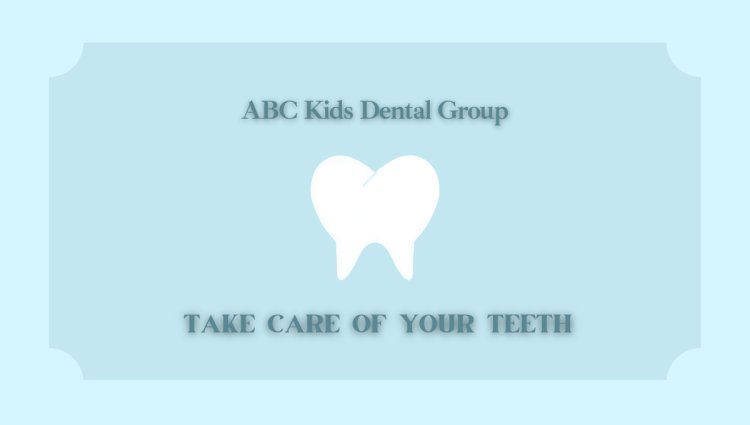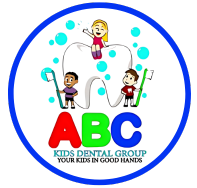How to Take care of your teeth and Mouth
Dental health and gums that are healthy enable you to eat healthily and enjoy delicious food. Many issues can impact the dental health of your mouth and gums,

Dental health and gums that are healthy enable you to eat healthily and enjoy delicious food. Many issues can impact the dental health of your mouth and gums, however good dental care will keep your gums and teeth healthy as you get older.
Tooth Decay
Teeth are coated with an outer, hard coating known as enamel. Every day, a thin film of bacteria known as dental plaque is formed around your teeth. The plaque-forming bacteria produce acids that damage enamel and lead to cavities. By flossing and brushing your teeth, you will help to prevent decay. However, when a cavity develops to avoid further damage, your dentist has to repair it with an amalgam filling.
Make sure you use fluoride toothpaste to guard your tooth against decay. If you're at more risk of developing tooth decay (for example, if suffer from dry mouth as a result of a medical condition or medications you take) it is possible that you require more fluoride. Dental professionals such as your dental hygiene professional may offer a fluoride treatment during a dental appointment or advise you to apply the fluoride-containing gel or mouthwash at home.
Gum Disease
Gum disease is triggered when plaque forms on and beneath your gum line. Plaque causes infection and affects your gums as well as the bones that keep your teeth. A mild type of gum disease could cause your gums to become red, tender, and more prone to bleeding. The problem, known as gingivitis is often treated by flossing and brushing daily.
A more severe type that is gum-related, referred to as periodontitis, needs to be addressed by a dentist. If it is not treated this condition, it can cause bleeding, sore gums, chewing issues that are painful, and even tooth loss.
To avoid gum disease:
- Cleanse your teeth twice every day using fluoride toothpaste.
- Floss often.
- Regularly visit your dentist for check-ups and cleaning. Let your dentist know about any medical issues or medications you are taking.
- Get a balanced and healthy diet.
- Stop smoking. Smoking can increase your risk of gum disease.
How to Clean Your Gums and Teeth
There's a correct method to brush and floss your teeth. Every day:
- Make sure you gently brush your teeth on both sides using soft-bristle brushes along with fluoride toothpaste. Refresh your dental toothbrush each 3-4 months.
- Make small circular movements and shorter back-and-forth strokes.
- Be gentle and careful when brushing along the gum line.
- Brush your tongue lightly or employ a tongue scraper to ensure that your mouth is fresh.
- Cleanse your teeth using dental floss, flossers with pre-threaded swabs or a water flosser, or another similar product. This helps remove food particles and plaque that a toothbrush cannot reach.
- Rinse after you floss.
Patients with arthritis or other ailments which limit hand motion could be unable to grip and brush their teeth. Some tips for helping include:
- Make use of a battery-powered or electric toothbrush.
- Choose a toothbrush with an extra-large handle.
- Attach the handle of your toothbrush to your hand using an elastic band.
Visit your dentist if the act of flossing or brushing causes your gums to flow or cause pain in your mouth. If you're having difficulty flossing using a floss holder, it could assist. Ask your dentist for guidance on how to floss properly.
Dentures
Sometimes fake teeth (dentures) are required to replace damaged teeth or teeth that have been lost due to gum disease. Dentures that are partial can be used to replace the gap left by missing teeth. Dentures can feel odd initially. When you first get them your dentist might want to visit you regularly to ensure the dentures are comfortable. As time passes the gums may change in shape and your dentures might require adjustment or replacement. Make sure you consult your dentist about the adjustments.
Wear your dentures with care as it could be more difficult than you think to able to sense the heat of hot food and drinks as well as be able to detect bone fragments in the food you eat.
- Start with soft, non-sticky meals.
- Chop your meals into smaller pieces.
- You can chew slowly by using both sides of your mouth.
Make sure your dentures are clean and free of food that could cause staining and bad breath. Avoid foods with small, crunchy pieces that could get stuck under dentures and cause damage to your gums. Make sure to brush your dentures regularly using the aid of a denture care product. You can also wash them with water or a denture cleanser liquid at the end of each night. Make sure you take them in your mouth when you rest to prevent swelling of the gums.
Dry Mouth
A dry mouth occurs because you lack enough saliva or spit in order to make sure your mouth stays moist. It can make it difficult to swallow food, eat tastes, and communicate. A dry mouth may increase the chance of getting dental decay and fungal infection in the mouth, and dental cavities. Common medications can trigger this issue. For instance, medications for depression, high blood pressure, and bladder control issues can result in a dry mouth.
There are some things you can try that could aid. Drinking water or sugar-free drinks. Do not smoke and stay away from the caffeine, alcohol soft drinks, alcohol, and acidic juices of the fruit. Avoid foods that are spicy or salty. Sugar-free hard candy or sugar-free gum that is a bit tart can help. The dentist or physician may recommend using synthetic saliva in order to make sure your mouth stays moist.
Oral Cancer
Oral cancer can develop anywhere in the throat or mouth which includes the tongue. This is more likely to develop in people over the age of 40. A dental exam is an ideal time for your dentist to check for indications of oral cancer. Pain is usually not an early indicator of cancer. Treatment is most effective prior to the spread of the disease. Even if it is the case that you have lost all of your natural teeth, it is recommended that you visit your dentist on a regular basis for regular dental cancer examinations.
There are ways to reduce the chance of developing oral cancer in several ways:
- Don't use tobacco products like chewing tobacco, cigarette pipes, snuff, or cigarettes.
- If you consume alcohol be sure to do it in moderate amounts.
- Apply lip balm to your lips along with sunscreen.
- Electronic cigarettes (e-cigarettes) are still relatively recent, and researchers are still discovering the long-term health consequences. But, we know the vapor of e-cigarettes contains cancer-causing chemicals.
What's Your Reaction?























